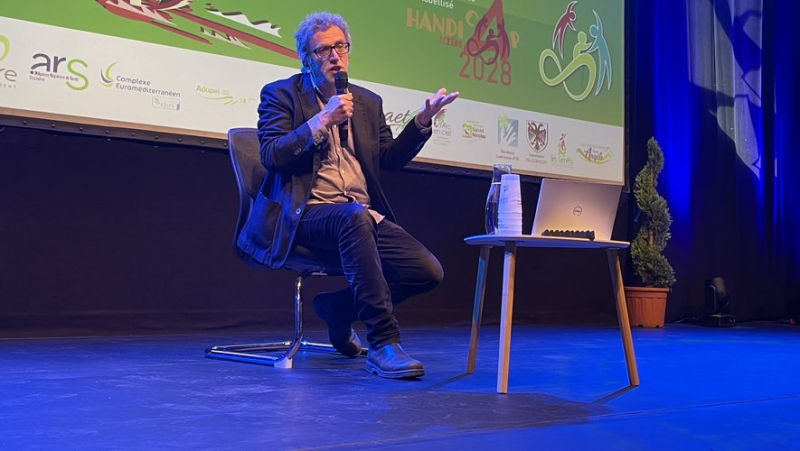Artificial intelligence at the heart of discussions on the inclusion of people with disabilities in Lozère

Lionel Naccache a apporté toute son expertise grâce à une conférence et des échanges avec le public. Midi Libre – Lucas Manouvrier
The disability conference, which took place on Friday May 31, 2024 in Langogne, made it possible to address new technologies and artificial intelligence in the service of the inclusion of people with disabilities .
The world is changing and technologies continue to develop. They take up space and today, it seems more and more complicated to do without them. Especially when they can provide help or intervene in complementarity with a human mission. And it is precisely on this theme that medico-social professionals focused on the occasion of the disability conference, initiated by the Department, Friday May 31, 2024, in Langogne. All the participants of the day focused precisely on the question: "What contributions do technology and artificial intelligence (AI) make? ) to promote the inclusion of people with disabilities ?"
Fostering autonomy
"I am one of those who are quite worried about AI, expresses Sophie Pantel, president of the Department of Lozère, in the preamble. But I still think that it can be a fantastic tool for innovation and support."Recalling that the disability sector is important and represents a large part of the community's solidarity budget (17 of the 54 million euros, Editor's note). Francis Chabalier, president of the Haut Allier community of communes, shares the same sentiment. “We hear a lot of bad things about AI and I hope that this day will also allow us to hear positive things.”
Lionel Naccache, neurologist specializing in cognitive neuroscience, led a conference to explain artificial intelligence as a whole, and from a medical point of view. AI, based on very specific criteria, could help diagnose pathologies. Or to collect data on the condition of a patient. Without forgetting the more fun technologies that help users on a daily basis. For example, an adapted 3D printer, movement games from a screen, the use of an exoskeleton, tools to facilitate communication, etc. For a health executive and an establishment director at Clos du Nid, this research into innovation must attract science to the medico-social field. "We focus on education and it takes an important place but science is also present, they believe. This day can be a gateway to joint work with scientists."
Don’t forget the human side
In the medico-social sector, where above all the notion of support reigns, the human element is omnipresent. "AI and robots will never be able to replace caregivers, supports Xavier Marette, departmental director of the Lozère Regional Health Agency (ARS). You have to look for your benefits." Lionel Naccache gave an example, that of timetables. In a few minutes, or even seconds, an AI can generate a schedule, saving time and allowing you to concentrate on another task. Sophie Pantel remained rather skeptical: "There is the human aspect too, some people cannot work together and we have to adapt the schedule according to the situations.& ;quot; There is also, despite everything, the question of cost. New technologies are expensive and budgets are often tight. But the subject was only quickly brushed aside. The objective of this day is to think about support and inclusion, even before putting it into practice.
It could be that Lozère, on the other hand, positions itself as a territory for experimentation. The department, due to its demographics and its associative fabric, is perceived from the outside as an ideal location. Its particular appetite for the disability sector, with this nickname of ’land of welcome", could allow it to be a pioneer in terms of innovation. At one point or another, in any case, the AI will settle there. "It will be imposed on us. We will have to apply the culture of change in our establishments, says Daniel Chaze, general director of the Saint-Nicolas association, based in Langogne. I too want to defend the human values of this sector but we must not be afraid of AI. It must be seen as an innovative tool."
I subscribe to read more




